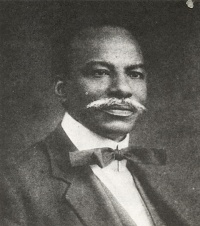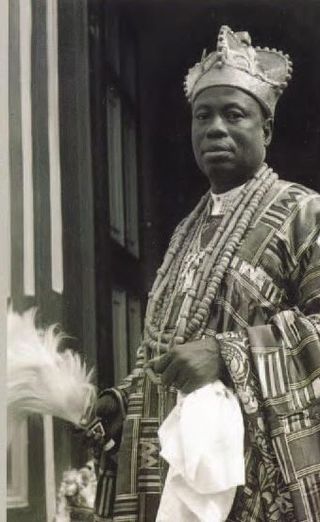Related Research Articles

The Judicial Committee of the Privy Council (JCPC) is the highest court of appeal for the Crown Dependencies, the British Overseas Territories, some Commonwealth countries and a few institutions in the United Kingdom. Established on 14 August 1833 to hear appeals formerly heard by the King-in-Council, the Privy Council formerly acted as the court of last resort for the entire British Empire, other than for the United Kingdom itself.

Mabo v Queensland is a decision of the High Court of Australia, decided on 3 June 1992. It is a landmark case, brought by Eddie Mabo against the State of Queensland. The case is notable for first recognising the pre-colonial land interests of Indigenous Australians within Australia's common law.
Canadian federalism involves the current nature and historical development of the federal system in Canada.

Terra nullius is a Latin expression meaning "nobody's land". It was a principle sometimes used in international law to justify claims that territory may be acquired by a state's occupation of it. There are currently three territories claimed to be terra nullius, two of which caused by border disputes between sovereign states, and one caused by no sovereign state claiming the land.

The High Court of Australia is Australia's apex court. It exercises original and appellate jurisdiction on matters specified within Australia's Constitution.
Native title is the designation given to the common law doctrine of Aboriginal title in Australia, which is the recognition by Australian law that Indigenous Australians have rights and interests to their land that derive from their traditional laws and customs. The concept recognises that in certain cases there was and is a continued beneficial legal interest in land held by Indigenous peoples which survived the acquisition of radical title to the land by the Crown at the time of sovereignty. Native title can co-exist with non-Aboriginal proprietary rights and in some cases different Aboriginal groups can exercise their native title over the same land.

Olayinka Herbert Samuel Heelas Badmus MacaulayListen was a Nigerian nationalist, politician, surveyor, engineer, architect, journalist, and musician and is considered by many Nigerians as the founder of Nigerian nationalism.

St Catharines Milling and Lumber Co v R was the leading case on Aboriginal title in Canada for more than 80 years. The Judicial Committee of the Privy Council, affirming a ruling by the Supreme Court of Canada, held that Aboriginal title over land was allowed only at the Crown's pleasure, and could be taken away at any time. This case, involving Ojibway Treaty No. 3 which had never been previously litigated before any court, is a leading decision in Canada on the differences between the division of legislative powers and property rights under the Constitution of Canada.

Milirrpum v Nabalco Pty Ltd, also known as the Gove land rights case because its subject was land known as the Gove Peninsula in the Northern Territory, was the first litigation on native title in Australia, and the first significant legal case for Aboriginal land rights in Australia, decided on 27 April 1971.

Aboriginal title is a common law doctrine that the land rights of indigenous peoples to customary tenure persist after the assumption of sovereignty under settler colonialism. The requirements of proof for the recognition of aboriginal title, the content of aboriginal title, the methods of extinguishing aboriginal title, and the availability of compensation in the case of extinguishment vary significantly by jurisdiction. Nearly all jurisdictions are in agreement that aboriginal title is inalienable, and that it may be held either individually or collectively.
The Allied Tribes of British Columbia (ATBC) was an Indigenous rights organization formed following the First World War. There were 16 tribal groups involved, all focused on the issues of land claims and aboriginal title in British Columbia.
Dominic Obukadata Oneya was Administrator of Kano State, Nigeria from August 1996 to August 1998 during the military regime of General Sani Abacha, then Administrator of Benue State from August 1998 to May 1999 during the transitional regime of General Abdulsalami Abubakar, handing over power to the elected executive governor George Akume on 29 May 1999. Later, he became Chairman of the Nigeria Football Association.
The Sagong Tasi case was a landmark land rights case in Malaysia, in which the courts ruled against the Selangor State in favour of the Temuan-Orang Asli plaintiffs.
The Treaty of Cession, 6 August 1861 or the Lagos Treaty of Cession was a treaty between the British Empire and Oba Dosunmu of Lagos wherein Dosunmu, under the threat of military bombardment, ceded Lagos Island to Britain, whilst retaining the title and powers of Oba, subject to English laws.
Ibikunle Alfred Akitoye (1871–1928) was Oba of Lagos from 1925 to 1928 during what some historians refer to as the "Interregnum" years of the exiled Oba Eshugbayi Eleko. Ibikunle Akitoye was the first western educated and Christian Oba of Lagos. Akitoye's reign also marked the association of Lagos Obas with non-traditional religions.
Oba Eshugbayi Eleko, alias "Eleko of Eko", was the Oba of Lagos from 1901 to 1925, and from 1931 to 1932. His father was Oba Dosunmu. Eleko's struggles and legal victory over the British colonial government symbolized the struggle between indigenous rights and colonial rule in Nigeria. The outcome of the "Eleko Affair" led to the Eleko's deposition as Oba and deportation to Oyo between 1925 and 1931, years that some historians now call the "interregnum years", and that saw the reigns of Oba Ibikunle Akitoye and Oba Sanusi Olusi.

Oba Sir Musendiku Buraimoh Adeniji Adele II, KBE was the Oba (King) of Lagos from 1 October 1949 to 12 July 1964.
Bonny Ibhawoh is an author and professor of global human rights and African Studies at McMaster University. His scholarship includes studies in the history of human rights, the cultural relativism of human rights, the right to development and peace/conflict studies. He is the author of several books on African History, Human Rights and Peace & Conflict studies including Imperialism and Human Rights, and Imperial Justice: Africans in Empire's Court, and Human Rights in Africa. He is a contributor to the GIAZILO blog - a blog on "Human Rights, Social Justice and Peace."
Chief Amodu Tijani Oluwa, also known as simply Amodu Tijani, was a Nigerian traditional chief. Coming to prominence in the high colonial period, he was a notable nationalist. He held the title of the Oluwa of Lagos.
Theophilus Olabode Avoseh, known as T. Ola Avoseh was a local historian, writer and chief of Badagry, Lagos. He wrote several booklets and pamphlets in English and Yoruba languages on aspects of the history and culture of Badagry and Epe towns in Lagos, Nigeria.
References
- ↑ Ibhawoh 2013, pp. 128–129.
- 1 2 3 Elias 1951, pp. 50–51.
- 1 2 3 Ibhawoh 2013, p. 129.
- ↑ Amodu Tijani v Secretary, Southern Provinces (1915) 3 NLR 24; (1918) 3 NLR 35.
- 1 2 Park 1964, p. 38.
- ↑ Ibhawoh 2013, p. 130.
- ↑ Alexandrowicz, Charles Henry (1973). The European-African Confrontation: A Study in Treaty Making. Sijthoff. p. 103. OCLC 1149020078.
- ↑ Park 1964, pp. 42, 45–46.
- ↑ McNeil, Kent (1989). Common Law Aboriginal Title. Oxford University Press. pp. 171–172. ISBN 0-19-825223-4. OCLC 18134954.
- ↑ Silverstein 2007, p. 68.